I have to admit something.
For as long as I’ve been a grant writer, my outrage at the nature of grantmaking and grantseeking has been boiling just below the surface.
It is, quite literally, the rich requiring the poor to work very hard to politely ask for things that they should already have, handing out breadcrumbs to the people many of them have built their business empires on the backs of.
And you have to do it in their format, using their language, according to their rules.
The nature of this relationship—grantmaker to grantee—is, by its very nature, unequal.
The inequality of that relationship trickles down through every aspect of grantseeking and grantmaking.
When I teach my grant writing students and coach my grant writing clients on their program designs, I teach them about the ways in which they are held accountable to grantmakers.
They must do what they say they would do in their grants; track their progress and metrics; record and analyze lessons learned, successes, and failures. They might even have to host the grantmaker for a site visit. Then they must apply for more funding again the next funding cycle with an entirely new application.
But how is the grantmaker held accountable for who they fund, how they treat their grantees, how they support and monitor grantees?
They’re not. There is no oversight beyond the little financial surveillance from the IRS.
Any expectations about giving diversely or equitably or grantmakers actually examining the implicit bias in their assessment of grant applications are largely self-imposed by grantmakers.
They get to choose whether or not to be better, to do the job of grantmaking in a way that reduces gatekeeping for underprivileged and underrepresented communities and nonprofits.
There is no dearth of resources on what grantmakers can do to improve their grantmaking, to be sure. There are organizations and committees and entire research studies on the topic.
What’s missing are the resources to help grantseekers hold grantmakers accountable.
I want to learn from each of you and determine what we can do together to hold grantmakers’ feet to the fire.
It’s time to change this inherent dynamic of inequality in grantmaking.
Right now, I am aware of one brand-new movement that might align with this aspiration: Community-Centric Fundraising. I’m not sure how much they will try to change governmental oversight of foundations, but I’m here for everything they’re doing.
Here’s their mission statement:
Community-Centric Fundraising is a movement to evolve how fundraising is done in the nonprofit sector. Its goal is to support fundraisers and other nonprofit professionals to re-examine every fundraising philosophy and practice they have been taught, engage in vigorous ongoing conversations, and explore doing fundraising in ways that reduce harm and further social justice. (About)
They also have a great resource page and have already hosted a few webinars explaining their intentions and goals. So check that out if you’re interested.
I’m definitely learning from them and finding out how I can get involved.
Click here if you want to get updates and participate in future events and research on this topic.






